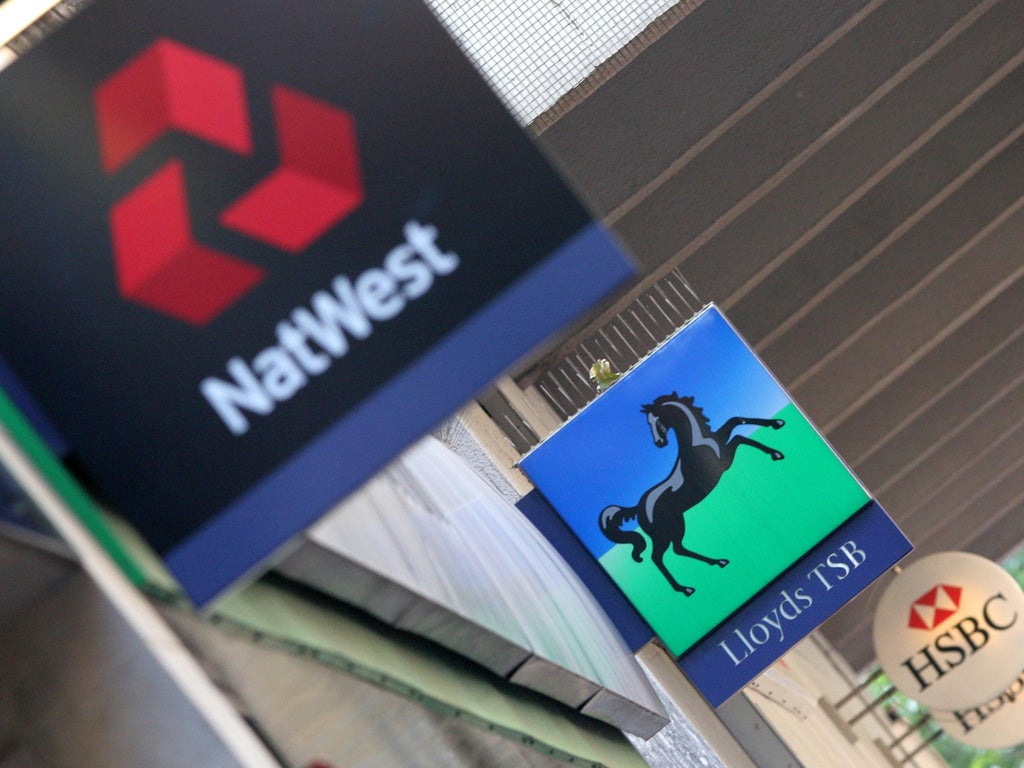Philip Hensher: Why should this lot get rich at my expense?

Britain is alone in Europe in maintaining free banking – or "free banking", as one ought to call it. Banks in Europe charge on average about £70 a year for basic banking services.
By contrast, British bank customers have grown used to not paying charges if their current account remains in credit. Banks have grown into the habit of making money through stealth charges on overdrafts and selling other products to their target markets. Some of those have been the cause of catastrophic problems in recent years, both social and financial.
I suppose most of us have had a run-in with the dark side of our banks. Mine was years ago, when I stopped paying attention to an ancient account where the balance, I thought, stood at zero – in fact, it was overdrawn by £10 or so. In retrospect, it was terrifying how quickly interest charges ran an effectively dormant account up to its overdraft limit of £250 and then, the account having exceeded its limit, how swiftly the charges doubled before someone at the bank thought to contact me to ask if I was aware that I owed £800 on a bank account I hadn't used for five years. My own fault.
But I don't think, in the UK, I'm the only doolally person about money. The doolally have been an important source of income for the banks – it would be curious to know how much an unauthorised overdraft of £10 actually cost the banks, compared with the £800 they got out of me in the end.
Deep thinkers about banking have decided to approach an aspect of this from the other end. A speech by Andrew Bailey, executive director of the Bank of England, recently rightly referred to free banking as a "myth", and said that banks would have to move towards charging for ordinary banking services, as in the rest of Europe. Other experts and authorities and pundits, such as the Treasury Select Committee's chairman Andrew Tyrie, and the Office of Fair Trading, have explicitly supported this.
Andrew Tyrie said that charging for in-credit accounts would lead to a more transparent system "where customers know how the banks are charging and give account holders a genuine choice". The argument is that "free banking" has, over the years, encouraged banks to come up with extremely questionable ways to make money out of customers. Under the argument is a hope that if "free banking" comes to an end, then banks will see that they are making £70 a year out of upstanding customers who never take out a loan or wander into overdraft, and will therefore stop squeezing Slack Alices for hundreds of pounds of compound interest for their unauthorised carelessness.
Yeah, right.
Can anyone think that banks, once introduced to one method of making money, will therefore stop exploiting the traditional methods? What will happen, clearly, is that banks will find themselves able to screw both innocent and guilty alike. Banks in Europe charge for accounts in credit, because it's unusual to be in overdraft – for both social and financial reasons. The same conditions just don't apply here.
Let us glimpse the future of banking by looking at one of the brilliant ways in which train companies in the UK make money out of us. If you book a seat on a particular train, you must take that train. If you miss that train, or if you board the train without all the documents that you have to bring with you, then you must buy a completely new ticket, not at the online rate, but either at the rate charged for a walk-on ticket or at a price including fines imposed by the ticket collector on board.
Passenger Focus, a travellers' pressure group, this week published some truly disgusting examples of the train companies' behaviour. A passenger who used a railcard to reduce a £14 fare to £10 forgot to bring his railcard. He could have shown it subsequently. The company charged him £260. Two elderly, disabled travellers had an accident and took an early train home. The company charged them £239 in fines. If you make a similar mistake on a trip from London to Newcastle, you will not only be charged for a completely new ticket at the highest possible rate, but you will also be charged an "unpaid fares notice", despite the fact that you may have paid the fare, of £150.50.
Now, having booked for a particular train, you should travel on that train, or how can the companies manage demand through prebooking? But I've been on trains in Europe where passengers have done exactly this, and what happens is what should happen by law. The passenger is charged the difference between what he paid, and what he would have paid if he had just turned up and walked on to this train. No fines for somebody who clearly has no intention of evading payment, and no demand for a completely new ticket. Need I add that some UK train staff are paid a bonus according to how many passengers they manage to fine each day?
Like the train companies, the banks need to be curbed. There needs to be some proportionality here. Companies should be able to use financial means to deter people from unauthorised overdrafts, or from buying a ticket for an off-peak train and then getting on a completely different one. What they shouldn't be able to do is get rich through these means.

Join our commenting forum
Join thought-provoking conversations, follow other Independent readers and see their replies